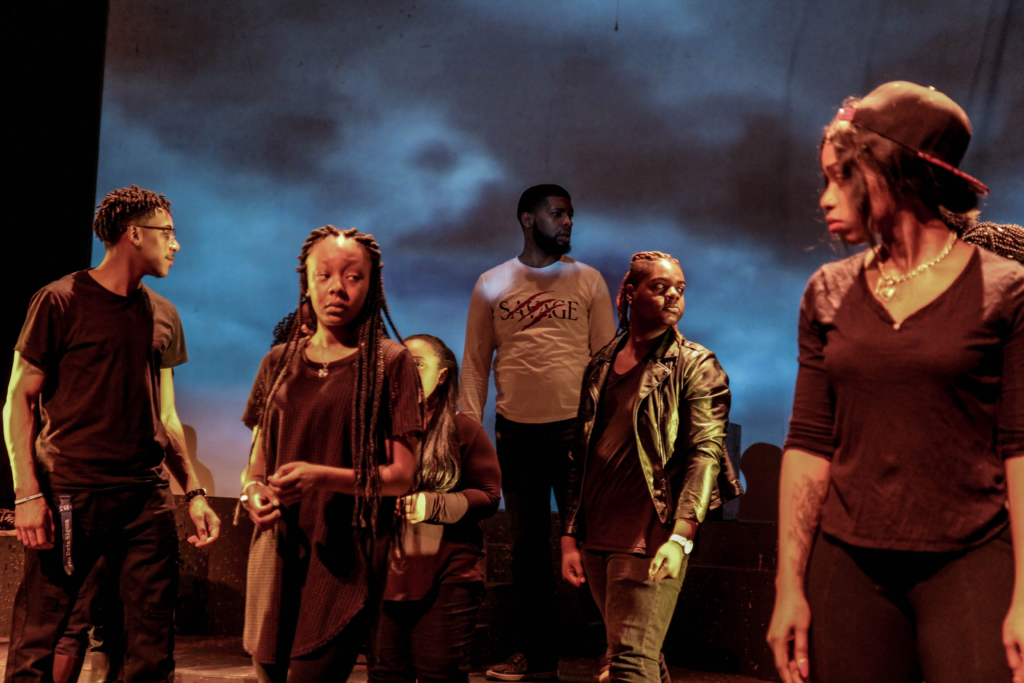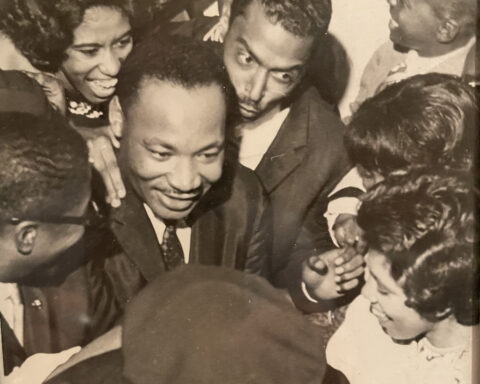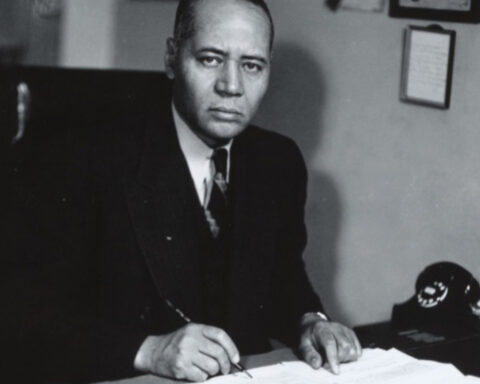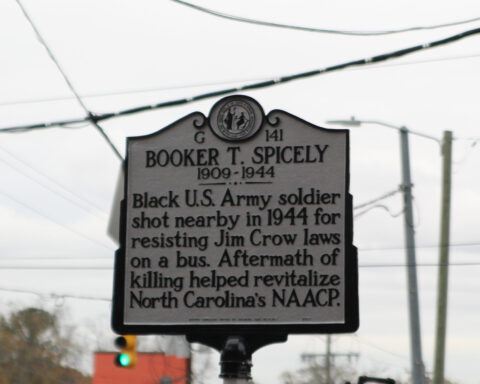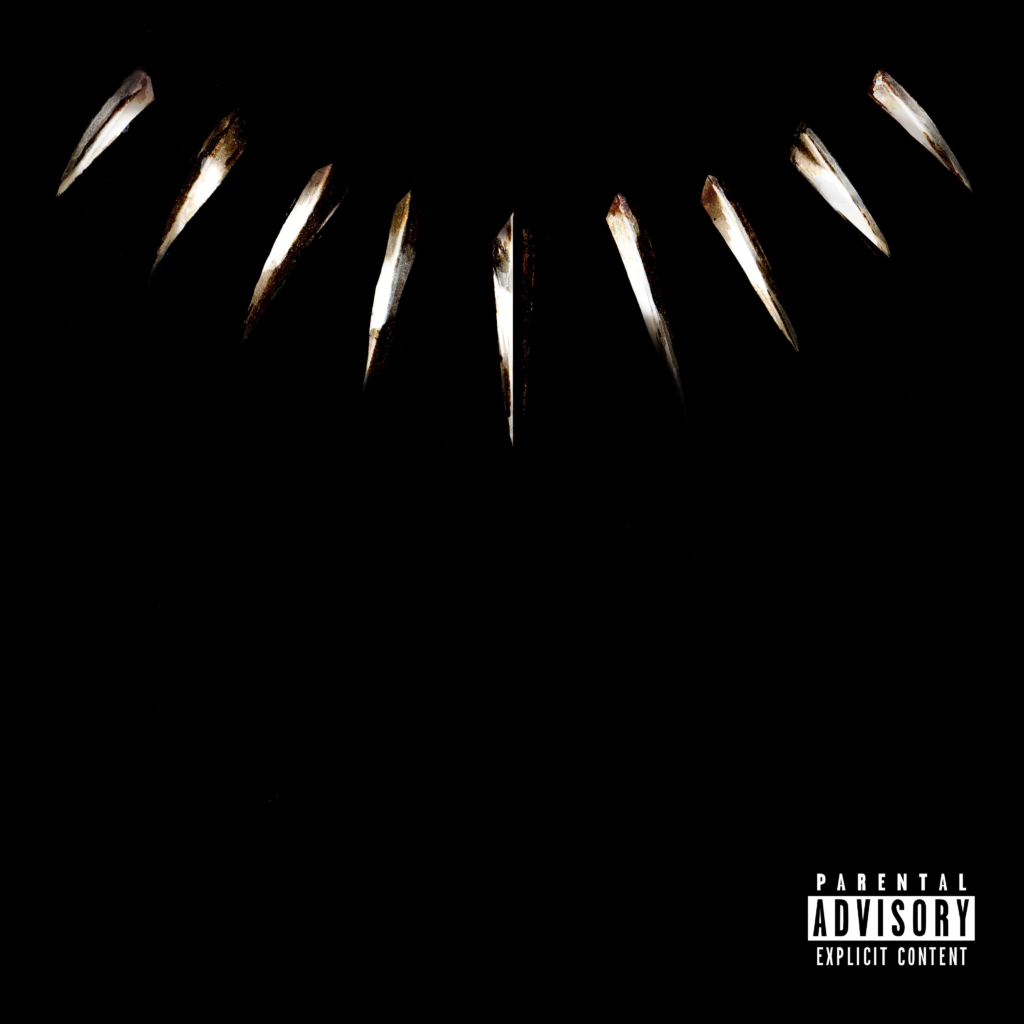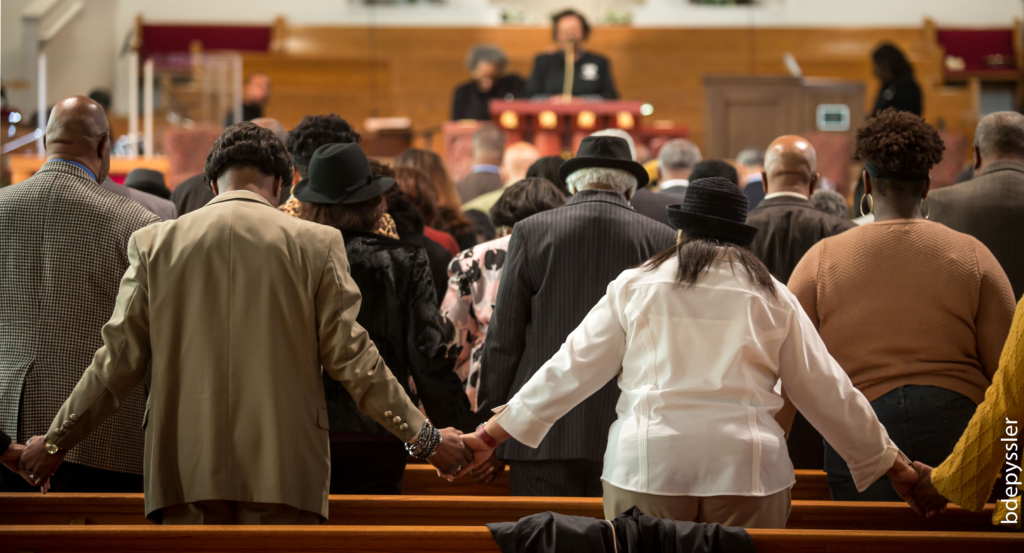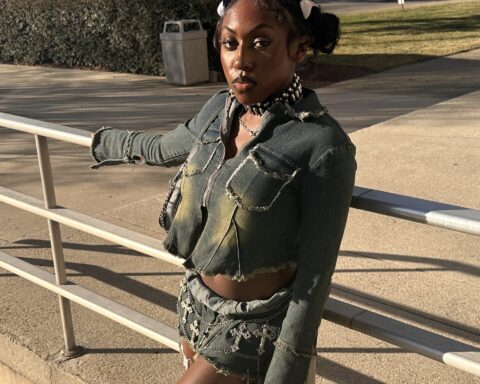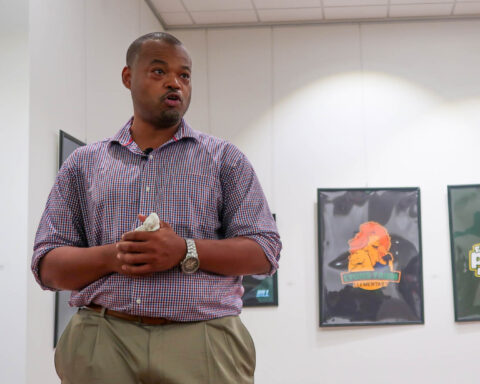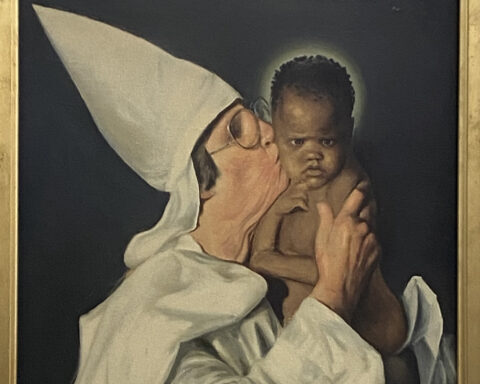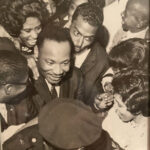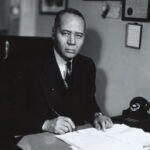Two of N.C. Central University’s acclaimed arts departments have joined forces to bring audiences “Speak My Soul,” a poetic dramatization honoring black history and culture, throughout the month of February.
The production, which “celebrates the strength of the African-American spirit, the wonder of black culture, and the greatness of black history through song, dance and the voices of renowned black poets,” is an original work written primarily by Department of Theatre and Dance chairwoman Dr. Stephanie “Asabi” Howard with help from other NCCU professors.
“We’re really happy about this collaboration,” Asabi said. “We (in the music and theatre and dance departments) have been discussing what we can do with this project to put things together for us. Of course, Black History Month seems to be a very opportune time to highlight anything in the arts so for us it was the poetry, the dance and the song.”
The play is filled with pieces of classic black poetry by notable black poets like Maya Angelou, Langston Hughes and Audre Lorde alongside elements of song and dance.
“This is the first time (since I’ve been here) that the theater department has joined up with the music department and had the University Choir come in. We’re doing this together,” Asabi continued.
According to Asabi, the main characters are black Americans throughout history in four different generations in their fight for justice. All of their individual stories, featured on different areas of the stage, will move the play along.
“It’s ultimately a type of compilation poetry. Within that, I did try to have some common themes that are threading along the poetic pieces,” said Asabi. “We have main characters that weave in and out as they’re telling their story and relating to the larger theme of racial justice.”
Theatre student Jasmine Logan, who plays a prison guard, describes “Speak My Soul” as a comparison of what black people struggled with during slavery to issues that still affect the community today.
“This is a play everyone should see—not only does it tackle everything that happened in slavery, but it’s talking about things that are still going on today,” Logan says.
Malcolm Green, who works in the theatre’s technical shop as a carpenter but acts here as the play’s Fourth Descendant, believes that the production’s message is far deeper than its disjointed timeline.
“For as much progress as we (black people) can say we have achieved, this play shows that we can say it ended, but you can’t just enslave a people and then say ‘okay, you’re free now,'” Green explains. “Once you enslave the mind, you can’t necessarily liberate the person and expect to liberate the mind as well. This play shows that there is still a lot of trauma.”
Green also has high praise for Dr. Asabi’s artistic direction.
“She always has a vision and it starts as a concentrate. Slowly, she’ll add water and push it away into different directions so that the concentrated matter can become a picture she’s painting. We may not see it all in the beginning, but as it begins to unfold it becomes beautiful,” Green declares. “She hasn’t let me down yet with her artistic process.”
Performances will take place on Feb. 16, 17, 23 and 24 at 8 p.m. and on Feb. 18 and 25 at 3 p.m. in the Farrison-Newton Communications Building’s University Theatre on the first floor. Donations will be accepted at the door before and after the show.

